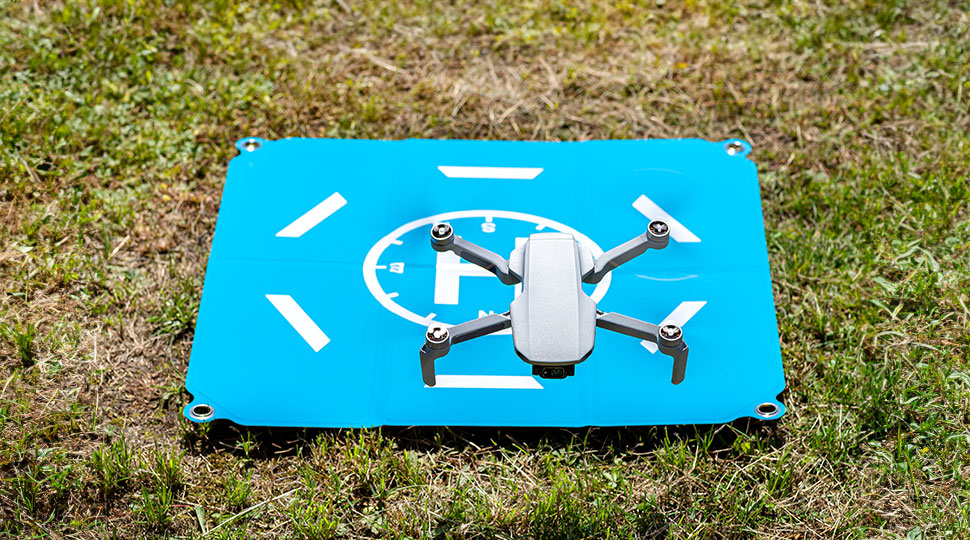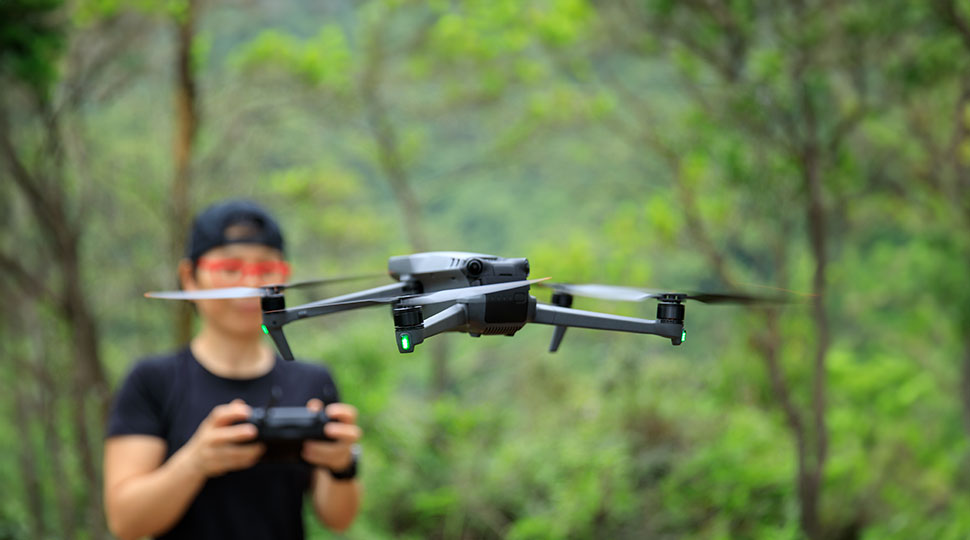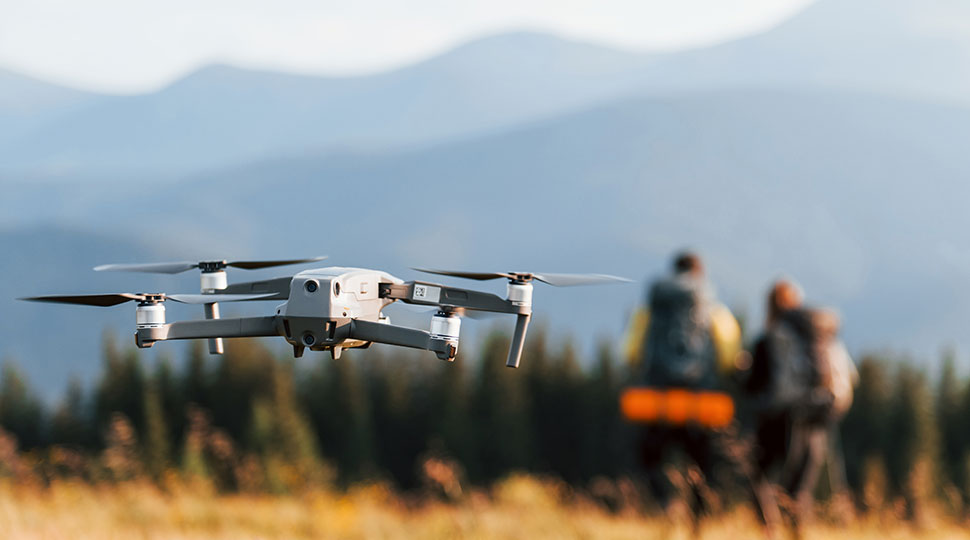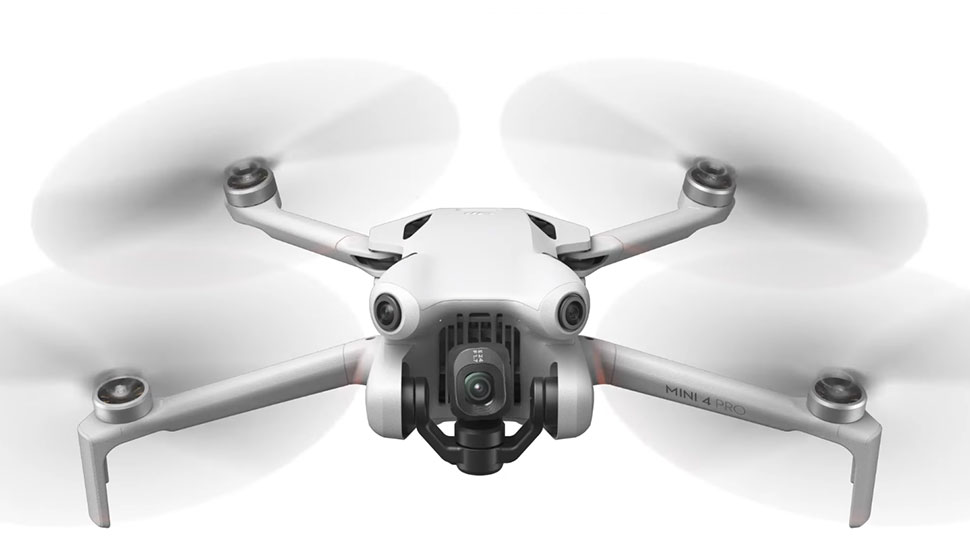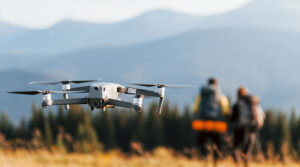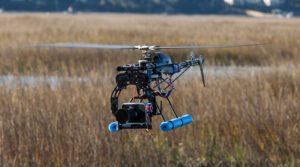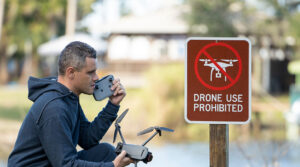In recent years, the use of drones in warefare has increased rapidly. While drones have become more prevalent in warfare, both militarily and economically, some countries have even outlawed their use to prevent misuse by professionals and amateurs alike. This article will discuss how and why drones are being used as weapons specifically in Ukraine.
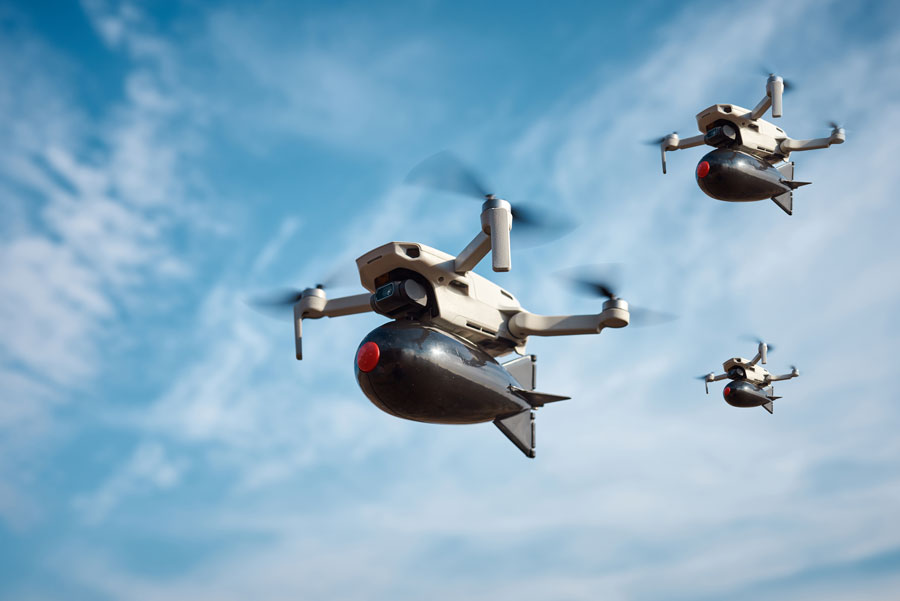
We will explore the history of Ukraine’s drone industry and the different types of drones used in modern warfare, such as surveillance, reconnaissance, and attack drones.
Furthermore, we will examine how drones play a crucial role in Ukraine’s ongoing conflict with Russia and the various strategies employed by both nations.
Get the latest articles in your inbox fresh and ready to read …
Get the New To Drones "All Access Pass"
All Access Pass members enjoy unlimited access to entire articles – 100% FREE
By signing up you agree to our Terms of Service and Privacy Policy. You also agree to receive our newsletters (you can easily and quickly opt-out at any time).
You will receive free access to all of our articles while you are a member of the site.
Ukraine and Drones: A Brief History
Although unmanned aerial vehicles (UAVs) have been in existence for decades, their widespread use as a military weapon primarily took off in the 21st century. The Ukrainian military has recently adopted drones for combat purposes, with one Ukrainian drone expert even referring to Ukraine as the “Israel of drones.” The history of drones in Ukraine dates back to the 1970s when the Soviet Union began using them in combat to maintain air superiority. During this time, the Soviet Union focused on developing UAVs for reconnaissance and surveillance purposes, with a particular emphasis on border control and intelligence gathering. As a part of the Soviet Union, Ukraine played a critical role in developing and manufacturing various components for these early UAV systems.
As the Cold War progressed, drones became increasingly popular as military weapons. The Soviets continued to invest in their development, leading to more advanced and capable systems. In the 1980s, the Soviet Union introduced drones capable of carrying out electronic warfare, jamming enemy communications, and conducting air-to-ground strikes. These advancements demonstrated the growing importance of UAVs in modern warfare and foreshadowed their widespread adoption by military forces worldwide. After the Cold War ended and Ukraine became an independent nation, it quickly transitioned to a democratic society and gained access to a wealth of military technology. This allowed Ukraine to continue its development of drone technology and explore new applications for UAVs in both military and civilian sectors.
Although Ukraine has been using drones in warfare for less than a decade, its drone industry has been around for much longer. Since gaining independence from the Soviet Union, Ukraine has continued its tradition of innovation in the aerospace industry, leading to the development of several indigenous UAV systems. Today, Ukrainian drone manufacturers produce a variety of UAVs for both military and civilian applications, ranging from small, tactical systems to larger, more advanced platforms. The ongoing conflict with Russia in eastern Ukraine has further highlighted the importance of UAVs in modern warfare and demonstrated their effectiveness in various combat scenarios. As a result, the Ukrainian military has continued to invest in drone technology and expand its fleet of UAVs, solidifying its reputation as a global leader in the field.
How Drones are Used in Warfare
Drones have revolutionized the way warfare is conducted in the modern era, providing a technological edge to the military forces that employ them. One of the primary uses of drones in warfare is surveillance, where they are used to monitor enemy activity and gather intelligence. Surveillance drones are equipped with advanced high-resolution cameras and sensors that can capture images and videos from high altitudes, allowing military forces to gain valuable insights into enemy operations without putting human lives at risk. These drones can operate in various weather conditions and can stay airborne for extended periods, providing real-time information to military command centers, enabling them to make informed decisions and plan their strategies accordingly.
Another important function of drones in warfare is reconnaissance. These drones are specifically designed to scout enemy locations, troop movements, and assess combat capabilities. Reconnaissance drones are equipped with advanced radar systems and other sensors that can detect and track targets from a safe distance. They can penetrate deep into enemy territory, often undetected due to their small size and stealth capabilities. As a result, reconnaissance drones have become an indispensable tool for gathering crucial information about the enemy’s positions, strengths, and weaknesses. This information is invaluable for planning military operations and ensuring the safety of friendly forces on the ground.
Attack drones, also known as unmanned combat aerial vehicles (UCAVs), are another critical component of warfare that has significantly changed the dynamics of modern combat. These drones are designed to target enemy troops, infrastructure, and disrupt enemy surveillance, effectively minimizing the risk to human soldiers on the battlefield. UCAVs can be armed with missiles, bombs, or other weapons systems, allowing them to engage targets with precision and minimal collateral damage. The use of attack drones has proven to be highly effective, particularly in counterterrorism operations, where they have been used to neutralize high-value targets without putting the lives of ground forces in danger. Overall, the integration of drones in warfare has provided military forces with unprecedented capabilities, enabling them to conduct operations with greater efficiency, accuracy, and safety.
Why Ukraine is Using Drones
Ukraine has recognized the importance and effectiveness of drones in modern warfare and has taken steps to integrate them into their military strategy. Drones offer numerous advantages in combat situations, particularly in their ability to operate in high-risk environments without putting human lives at risk. In the ongoing conflict with Russia, drones provide Ukraine with critical intelligence, surveillance, and reconnaissance capabilities, allowing them to track the movements of enemy forces, assess the damage inflicted on targets, and even identify potential threats before they materialize. This increased situational awareness enables Ukrainian forces to make informed decisions and respond more effectively to the constantly evolving battlefield.
In addition to their intelligence-gathering roles, drones have also proven their worth in offensive operations. Armed with precision-guided munitions, Ukrainian drones can engage enemy targets with minimal risk to friendly forces. This is particularly crucial in the context of the conflict with Russia, where the disparity in conventional military capabilities is significant. By leveraging the capabilities of drones, Ukraine can level the playing field and stand up to their larger and more powerful adversary. Furthermore, the use of drones allows Ukraine to conserve its limited resources and personnel by conducting targeted strikes with minimal collateral damage.
The development and use of drones by Ukraine have not gone unnoticed by their Russian counterparts. Russia has also deployed its own fleet of drones to exert control over Ukrainian territory and gather intelligence on Ukrainian positions and movements. This has led to a sort of technological arms race between the two nations, with each side continuously seeking to develop more advanced and effective drone systems. In response to the growing drone threat, Ukraine has also invested in counter-drone technology to detect, track, and neutralize enemy drones. In this context, the integration of drones into the Ukrainian military strategy not only bolsters their capabilities but also serves as a vital deterrent against potential Russian aggression.
How Drones Are Being Used in Ukraine
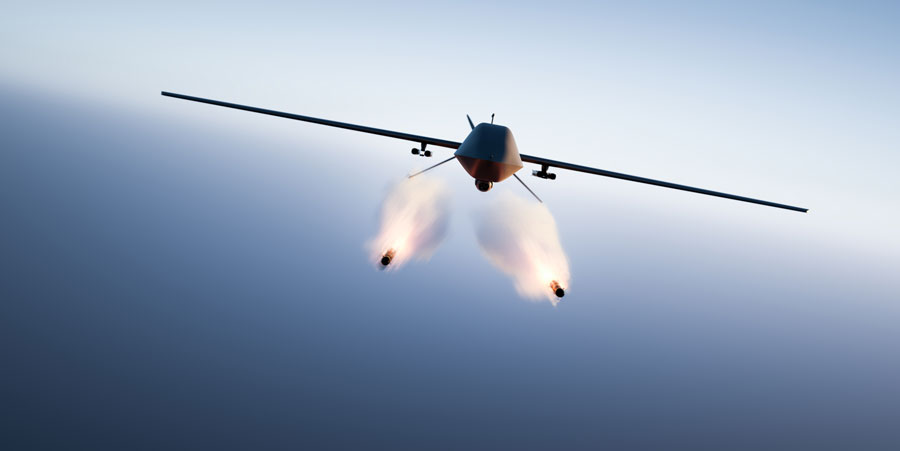
Drones have become an integral part of Ukraine’s military strategy and defense system, as they provide a versatile and cost-effective solution to counter the growing threat of Russian aggression.
In recent years, the country has developed and acquired a range of drone systems to fulfill various roles in the battlefield. For instance, small surveillance and reconnaissance drones like the PD-1 and Spectator-M are used to gather vital intelligence on enemy movements, positions, and equipment. These drones are equipped with high-resolution cameras, thermal imaging systems, and other advanced sensors, allowing the Ukrainian forces to maintain a constant watch over the contested areas and make informed decisions based on real-time information.
Ukraine has also equipped some of its drones with offensive capabilities to strike enemy targets. The Bayraktar TB2, a Turkish-made armed drone, has been a game-changer for the Ukrainian military, providing them with a powerful and precise weapon to engage Russian-backed separatists. The Bayraktar TB2 can carry up to four laser-guided missiles and has a range of over 150 kilometers, enabling it to hit targets deep within enemy territory. The use of armed drones has significantly enhanced Ukraine’s ability to conduct long-range, precision strikes against enemy forces, without putting the lives of its pilots at risk.
Ukraine has also deployed unmanned boats, or UBMs, to enhance its maritime surveillance and defense capabilities. These robotic vessels can be equipped with various sensors, communication systems, and even missile launchers, allowing them to track and engage enemy ships and submarines effectively. UBMs can operate autonomously or be remotely controlled, making them an ideal solution for patrolling the vast expanse of water bodies that Ukraine shares with Russia. By leveraging these advanced drone technologies, Ukraine is not only bolstering its military capabilities but also sending a strong message to its adversaries that it is well-prepared to defend its territorial integrity and national interests.
Cleared for Takeoff
Drones are becoming increasingly common in warfare, serving various functions such as surveillance, reconnaissance, and attack. Ukraine has been using drones since the 1990s and boasts a thriving drone industry that has existed for decades. Drones are particularly important in Ukraine, where they are being used as a weapon against Russia. Aside from their military applications, drones are also utilized in numerous civilian capacities, making them a crucial component of modern warfare.

